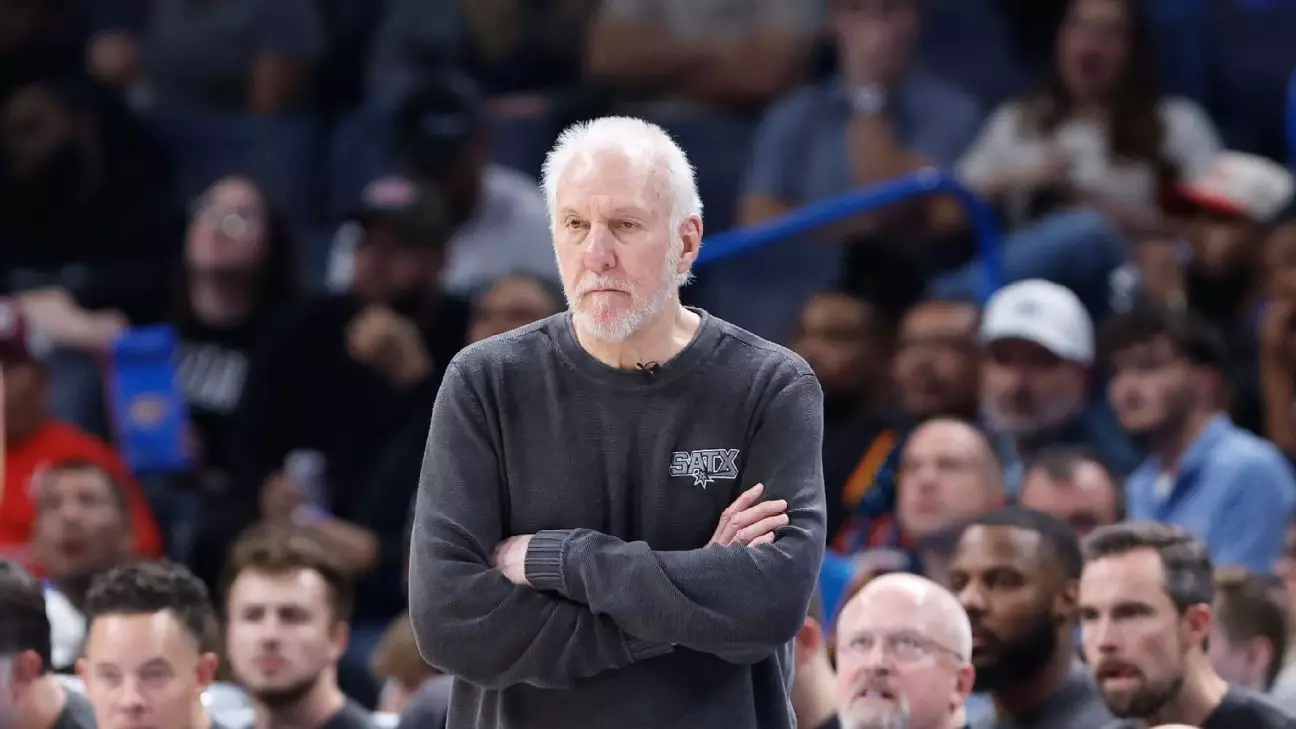The San Antonio Spurs are experiencing an extraordinary season filled with surprises and tribulations, primarily centered around the health of their iconic head coach, Gregg Popovich, who has carved out a legendary legacy in the realm of basketball. According to reports, Popovich is not expected to return this season after suffering a mild stroke in November, casting a shadow of uncertainty over his future in the NBA. This unexpected medical issue comes at a time when the franchise is already grappling with the recent diagnosis of deep vein thrombosis for their promising star, Victor Wembanyama—leading to his shutdown for the remainder of the season.
With the series of setbacks making headlines, one cannot help but reflect on the inherent challenges that athlete teams face, much like families wrestling with the trials of life. As Spurs point guard Chris Paul aptly stated, adversity often fosters a sense of unity. The circumstances have compelled the team to rally together, exemplifying how sports transcend mere games and become a portrait of human resilience and connection.
Gregg Popovich, revered as the NBA’s all-time winningest head coach, boasts an illustrious career marked by 1,390 regular-season victories and 170 postseason wins—including five championships. His tenure, which began in the 1996-97 season, has become synonymous with excellence. However, as he turned 76 this January, there emerges a poignant question: is this the end of an era?
Popovich has led with a unique coaching philosophy, emphasizing player development, teamwork, and the cultivation of a robust organizational culture. These principles have not only fueled the Spurs’ success but have also reshaped the very essence of coaching in the NBA. The gravity of Popovich’s absence cannot be understated, as he is not only a coach but also a mentor to countless players, as well as a guiding force in the lives of many within the organization.
In the wake of his stroke, assistant coach Mitch Johnson has taken the reins, leading the team to a commendable record of 21-27. Despite stepping into such enormous shoes under adversity, Johnson’s ability to connect with the players and maintain the team’s cohesion speaks volumes about the foundational principles that Popovich instilled.
Even while physically absent, Popovich remains actively engaged with the team. His support has transcended mere communication; he continues to provide strategic insights, demonstrating his commitment to the Spurs. This ongoing relationship signifies the deep-rooted connections he has cultivated over his years at the helm. Spurs CEO RC Buford remarked on Popovich’s staunch approach to rehabilitation, emphasizing the same tenacity that characterized his coaching strategy.
Popovich’s capacity to draw support from former players and the broader community highlights a critical aspect of leadership: the ability to inspire loyalty and respect. The bonds forged through years of shared success and struggles reinforce the notion that leadership is not solely about position but about the impact one has on others.
Gregg Popovich’s influence extends far beyond the Spurs’ franchise; it reaches into the very fabric of basketball culture. His accomplishments include coaching the USA Basketball team to gold at the Tokyo Olympics in 2021, underscoring his capabilities on an international platform. The ripple effects of his coaching philosophy are felt throughout basketball, with many coaches looking to his methods as a blueprint for success.
As the Spurs navigate through this challenging season, the question arises: what will the future hold for Popovich? Although the organization has expressed a collective commitment to honoring his legacy, the ultimate path remains uncertain.
The current season may have thrown unexpected challenges in their way, but the resilience and spirit fostered under Popovich’s watchful eye are bound to emerge in their gameplay. While the world awaits clarity on Popovich’s future, the lessons he imparted remain invaluable—demonstrating that strength, empathy, and unity are the true pillars of teamwork, on and off the court.

